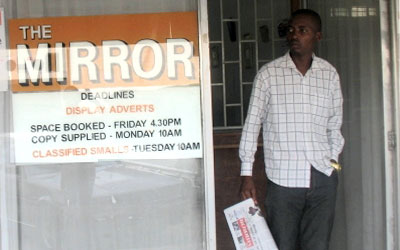Legal protection falls short for Zimbabwe’s Insider
The Insider is a political newsletter about Zimbabwe, edited by veteran journalist Charles Rukuni. Founded in 1990, it was printed as a 12-page leaflet until 2003, when Zimbabwe’s hyper-inflation made it impossible to publish with annual subscriptions. Rukuni made the move to the Web, where he continued to archive and publish stories at insiderzim.com. Rukuni’s…
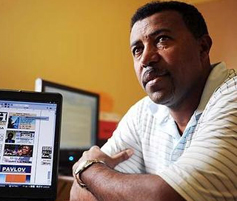
CPJ’s exiled journalists survey: Behind the numbers
In 2007, my colleague Karen Phillips suggested we do something to mark World Refugee Day. Initially planning to publish a brief statement, I set about reviewing our data for background, checking in with older journalist cases about their current situation and looking broadly for trends to highlight. As the number of cases began counting into…
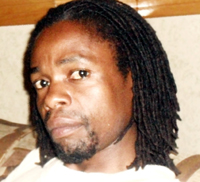
For Zimbabwean journalist Saize, the absurd is routine
For 37-year-old Zimbabwean freelance journalist Sydney Saize, left, enduring arrest and assault has become absurdly routine–and the circumstances routinely absurd. Take his most recent detention, in February. Saize was reporting on a mundane criminal case in Mutare, capital of the diamond-rich Manicaland province, when the story suddenly turned dramatic.
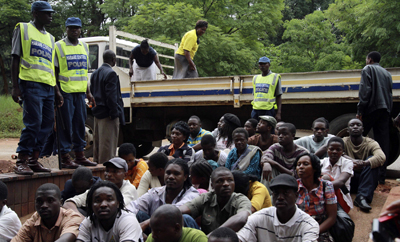
Zimbabwe charges 45 with treason for viewing Egypt footage
The right to receive and impart information is a fundamental human right enshrined in the United Nations’ Universal Declaration of Human Rights, but in Zimbabwe, watching news of North African and Middle East protests apparently amounts to treason.
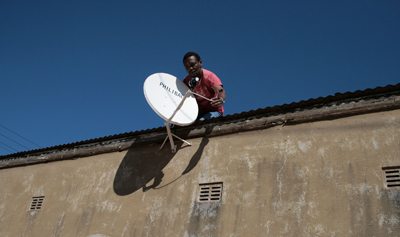
Sub-Saharan Africa censors Mideast protests
As news of Middle Eastern and North African protests swirl around the globe, satellite television and the Internet prove vital sources of information for Africans as governments fearful of an informed citizenry and a free press such as in Eritrea, Equatorial Guinea, and Zimbabwe impose total news blackouts on the developments.

ANC plans taint Southern Africa’s press freedom leader
As heads of state gathered last week at the summit of the Southern African Development Community, or SADC, in Namibia, their discussions were dominated by the progress of Zimbabwe’s precarious power-sharing political agreement, which includes pledges to address a repressive media environment. Leading the mediation in the Zimbabwean crisis has been neighboring South Africa, which…
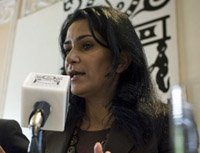
Cano laureates say no to UNESCO Obiang prize
Each year, UNESCO honors a courageous international journalist with the UNESCO/Guillermo Cano World Press Freedom Prize, named in honor of the Colombian editor murdered in 1986 by the Medellín Cartel. The prize is chosen by an independent jury and over the years I’ve attended several moving ceremonies in which some of the most daring journalists…

In Zimbabwe, Daily News is on the way back
Zimbabwe’s beleaguered independent media won a major victory when an official commission granted publishing licenses to four daily newspapers, including The Daily News, the nation’s leading paper before it was outlawed seven years ago. The news was greeted with cheers from independent journalists, who have endured years of repression, arrest, and violence at the hands of Zimbabwe’s…
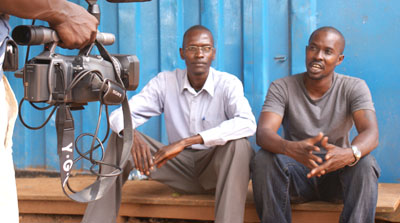
Freedom of information laws struggle to take hold in Africa
In Uganda, a ruling this week in a landmark case of two journalists seeking to compel their government’s disclosure of multinationals oil deals highlighted the challenges to public transparency just before media leaders, press freedom advocates, officials, and former U.S. President Jimmy Carter gather in Ghana next week at the African Regional Conference on the Right…
